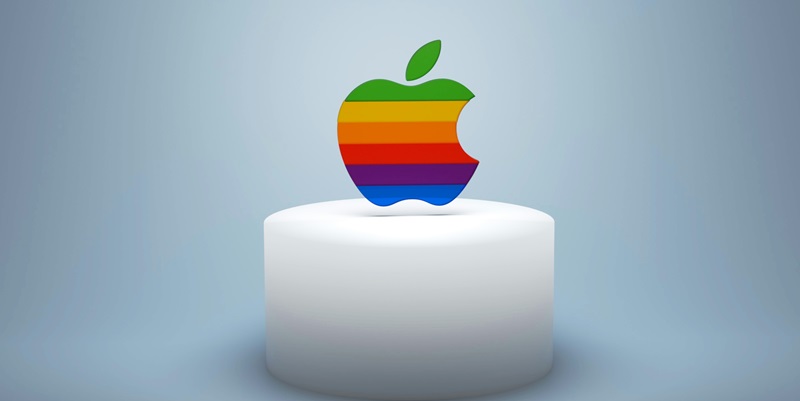The buzz around the upcoming iPhone 17 is already making waves, with speculations pointing towards significant hardware upgrades that promise to revolutionize mobile performance. One of the most anticipated enhancements is the increase in RAM from the current 8GB in the iPhone 16 to 12GB in the iPhone 17. But what does this mean for the average consumer, and will this upgrade truly set a new benchmark for smartphone performance? As we delve into the potential improvements and implications of this increase in RAM, it’s essential to consider how this enhancement will affect everyday usage, gaming experiences, market positioning, and other speculated features.
Anticipated RAM Upgrade: What It Means for Users
Rumors suggest that the iPhone 17 lineup will feature models with up to 12GB of RAM, marking a substantial increase from the 8GB available in the iPhone 16. This leap in RAM capacity is expected to significantly enhance the device’s performance, particularly in handling multitasking and more demanding applications. Increased RAM means that the iPhone 17 can manage more processes simultaneously, reducing lag and improving the overall user experience. For everyday users, this translates to smoother app transitions, faster load times, and a more responsive interface. In essence, the device will be more adept at handling multiple high-intensity applications without compromising performance.
Moreover, higher RAM capacity supports advanced on-device AI functions. This capability is crucial in minimizing dependence on cloud-based services, which often require high-speed internet access. With more operations processed locally on the phone, users can expect faster and more reliable AI-driven features, even in areas with poor internet connectivity. This improvement could significantly enhance the usability of voice assistants, real-time language translation, and other AI-based applications, providing a seamless experience regardless of network conditions. Additionally, increased RAM could boost the performance of camera apps, enabling quicker processing of high-resolution photos and videos.
Enhancing the Mobile Gaming Experience
For gaming enthusiasts, the iPhone 17’s increased RAM could be a game-changer. Higher RAM allows game developers to integrate high-level textures and more complex features in AAA games, providing a more immersive and visually stunning gaming experience. Mobile games are becoming increasingly sophisticated, requiring more computational power and memory to run smoothly. The 12GB RAM in the iPhone 17 is expected to handle these demands more effectively, reducing lag, enhancing graphics, and providing a more seamless gaming experience. This capacity would not only accommodate current high-demand games but also future-proof the device for upcoming game releases with even more advanced requirements.
Additionally, with the rise of augmented reality (AR) games, the extra RAM will be instrumental in delivering fluid and responsive gameplay. This improvement will likely position the iPhone 17 as a top choice for gamers looking for a mobile device that can keep up with the latest gaming trends and technologies. Enhanced RAM capacity will facilitate smoother AR experiences, allowing users to explore virtual worlds with fewer interruptions and greater realism. These advancements could also extend to non-gaming applications of AR, such as educational tools and virtual tours, making the iPhone 17 a versatile device for both entertainment and productivity.
Market Differentiation and Consumer Appeal
Apple’s strategy of differentiating its Pro and standard models could continue with the iPhone 17. The rumored 12GB RAM might be exclusive to the Pro models—iPhone 17 Pro and iPhone 17 Pro Max—while the standard models could retain the 8GB RAM seen in the iPhone 16. This differentiation helps Apple appeal to different consumer segments by offering varying levels of performance and price points. For current iPhone 15 Pro and iPhone 15 Pro Max users, the similar RAM capacities in the iPhone 16 models may have provided little incentive to upgrade. However, the speculated 12GB RAM in the iPhone 17 could serve as a compelling reason for these users to make the switch.
The promise of enhanced performance and new features will likely attract a significant number of consumers looking for the latest advancements in smartphone technology. This could potentially expand Apple’s market share by drawing in users from competing brands who prioritize high performance. By segmenting their market strategy, Apple can cater to both premium users seeking top-tier performance and more budget-conscious consumers who still desire a quality device. This approach allows the company to maintain its stronghold in the market while appealing to a broader audience with various needs and preferences.
Beyond RAM: Additional Speculative Features
The excitement surrounding the upcoming iPhone 17 is already making waves, with rumors suggesting significant hardware upgrades that aim to transform mobile performance. One of the most eagerly awaited improvements is the increase in RAM, jumping from the current 8GB in the iPhone 16 to a substantial 12GB in the iPhone 17. This raises an important question: What does this mean for the average user, and will this upgrade truly set a new standard in smartphone performance?
As we explore the potential benefits and consequences of this RAM boost, it’s crucial to consider its impact on everyday usage. Enhanced RAM could lead to smoother multitasking, faster app launches, and more efficient handling of complex tasks. For gamers, this could translate into a more immersive experience with fewer lags and better graphics rendering.
In addition to gaming, the increase in RAM may reposition the iPhone 17 in the marketplace, potentially setting a benchmark that other manufacturers will strive to match. We should also take into account other rumored features, such as improved battery life, advanced camera systems, and enhanced AI capabilities. Collectively, these enhancements promise to make the iPhone 17 a formidable contender in the ever-competitive smartphone market.

